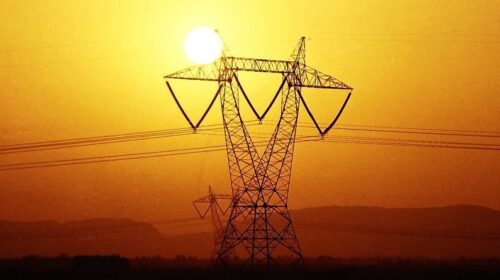The National Electric Power Regulatory Authority (Nepra) on Tuesday slashed the power tariff by Rs3.60 per unit for the agriculture consumers under the Prime Minister Kissan Package 2022.
A notification issued by the power regulator maintained that the basic tariff for agri consumers had been reduced to Rs13 per unit from Rs16.60 per unit at the request of the Ministry of Energy (Power Division).
According the notification, the energy ministry on December 13 had requested Nepra to share its concurrence regarding Kissan Package 2022 for reduction in price of electricity for private agriculture consumers.
The ministry had referred to the Economic Coordination Committee of the Cabinet’s decision in this regard which was duly ratified by the federal cabinet.
The decrease in the power tariff would be applicable to all agri consumers of ex-Wapda power distribution companies (Discos) including the K-Electric (KE).
The consumers would get a relief of Rs28 billion while the federal government will provide subsidy in this regard.
It will apply to the billing month of November.
Meanwhile, Nepra indicated reducing the power tariff by Rs7.43 per unit for KE consumers on account of fuel adjustment for the month of November 2022.
However, during a hearing, it also indicated to increase power tariff by Rs3 per unit for KE consumers on account of quarterly fuel adjustment in a bid to reduce subsidy being given by the federal government.
During a separate hearing, the power regulator indicated an increase in the tariff by Rs0.18 per unit for consumers of all other power distribution companies (Discos) except KE on account of fuel adjustment for the month of November 2022.
Increase in tariff for Discos consumers
During a public hearing, Nepra said that the CPPA had filed a petition seeking an increase of Rs0.1938 per unit in tariff for the month of November. However, according to scrutiny of data by the power regulator, the tariff increase was Rs0.1857 per unit.
Nepra asked why prior arrangements were not made regarding demand and supply of power. It was noted that there was also a shortfall of electricity during December 2022.
The interveners maintained that the petitioner had not shown any data regarding heat rate of power plants. They said that the heat rate determined the efficiency of the power plants, adding that it was missing. However, it was noted that the power plant cost was in line with Nepra’s approved heat rate.
During the hearing, it was also stressed to make price calculation public. However, Nepra said that it could not make everything public regarding price calculation because of the confidentiality clause involved in the contract between the plant operator and lenders.
KE tariff on account of fuel adjustment
During a public hearing, it was said that the KE had sought a reduction of Rs7 per unit in the power tariff. However, according to Nepra’s calculation, the reduction would be Rs7.43 per unit.
It would provide a relief of Rs10 billion to the KE consumers on account of fuel adjustment for November 2022.
The meeting was also informed that there had been a decline in prices of gas by 6%, RLNG 22%, and furnace oil by 16% compared to prices in September 22.
The KE officials also observed that in order to stabilise the system they did not use furnace oil in the plants. They said that two units of Bin Qasim Plant were operating to generate 750MW of electricity.
The power generation will reach 900MW during this year, the KE officials said, adding that there would be no shortage of electricity in the upcoming summer months after full commissioning of the Bin Qasim Plant.
The power regulator also called for submitting a plan to reduce the generation cost within a week.
Meanwhile, the interveners said that the cost of electricity generation by KE plants was still higher. They also referred to the reports that the government would impose new surcharges to meet the IMF conditions.
The energy ministry maintained that there was no such development, saying that the power minister had already issued a clarification in this regard.
If the government imposed surcharges, it would destroy the industry, the interveners said, adding that they were already facing a problem in the import of raw material due to the shortage of dollar.
Nepra chairman said that in order to reduce the cost of doing business, they were making efforts to give the best rate to the industries.
It was also said that the privatisation of KE had “failed”, noting that the purpose was to make the entity self-reliant in generation and distribution.
The meeting noted that the KE was still receiving 1,000MW of electricity from the national grid, observing that its own power generation was “very expensive”.
In a separate petition, the energy ministry requested an increase in the power tariff by Rs3 per unit for the KE consumers on account of quarterly fuel adjustment.
It said that the KE was providing electricity at Rs43 per unit while the government was providing a subsidy of Rs18 per unit. Now, the government wanted to reduce the rate of electricity from Rs18 per unit to Rs15 per unit in order to maintain uniformity in electricity prices.
The power ministry said that the government was giving a subsidy of Rs283 billion for the KE consumers.
It said that the increase in tariff would be applicable from January 2023 to April 2023.







